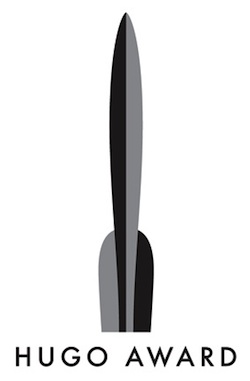I have learned a lot from writing this series. I have learned exactly how to find everything quickly in Locus’s wonderful Index to Awards, without which I couldn’t even have thought about doing this.
I have learned that novellas are consistently the Hugo category about which I feel most enthusiastic, which I would never have guessed was the case. I’ve learned that I still love Dune despite everything, and that the alien sex really is the only bit worth remembering from The Gods Themselves. I’ve learned that hardly any years have sufficient good movies to make it worth having a special category for Dramatic Presentation—delenda est! I’ve learned that the results of the Campbell Memorial Award almost always baffle me and that the Philip K. Dick Award always picks up interesting things other awards miss.
I’ve also learned a lot from the comment threads—the discussion on these posts have been stellar. I especially valued the weekly participation from Gardner Dozois, Rich Horton and James Nicoll. Thank you, everyone.
But did I learn the thing I set out to learn, whether the novel nominees are the best five books of the year?
Not really.
I concluded that they did a mostly good job in 1959, 1960, 1961, 1963, 1964, 1965, 1966, 1968, 1970, 1971, 1972, 1974, 1975, 1977, 1979, 1982, 1983, 1984, 1986, 1988, 1989, 1990, 1991, 1992, 1993, 1994, 1997, 1999 and 2000—twenty-nine out of forty-two years that had nominees, or sixty-nine percent.
I concluded they didn’t do a good job in 1962, 1967, 1969, 1973, 1976, 1978, 1980, 1981, 1985, 1987, 1995, 1996, 1998, thirteen out of the forty-one years, or thirty-one percent.
So yes, on numbers I thought the Hugos were doing a good job more often than not—sixty-nine percent of the time. And I was looking at “representative of where the field was” as well as “best,” and I was trying hard not to mistake “best” for “Jo’s favourite” so I think that there were times I gave a year the benefit of the doubt.
Sixty-nine percent is okay I suppose, but it feels like a wishy-washy “well sort of” as a conclusion. I’d have preferred something more definite in either direction. My intuitive guess before I actually looked at the data would have been more like eighty percent. So yes—well, doing pretty well, could do better.
When I started doing this series, everybody thought I meant to read or re-read all the Hugo winners, but that wasn’t what I wanted to do at all. For one thing this is a fairly normal thing to do—several people I know have done it. For another thing I think that there’s too much significance on winners, when what I think is much more interesting is the whole slate of nominees. I wanted to look at them as a set, and as a set in the context of their year. In addition, I am fairly well read in the genre but there are lots of things I haven’t read, and I wanted to look at what I had and hadn’t read and my reasons for not having read things. Whether I’ve read something is a piece of data to go with whether it’s in print and in the library.
Still, 1953-2000 is a lot of years, and therefore a lot of Sundays. It’s been fun writing these posts, but it’s also been a bit of a pain occasionally, needing to get them done on time—sometimes that meant I had to do several years at once when I was going to be away, and I’d be staring at ISFDB looking for other things published that year until my eyes were crossing. Also, I got better at it as I went along and got the formula properly worked out. I feel as if I want to go back and redo the earlier ones to make them more compatible.
But in Worldcon this year in Reno, in addition to a ton of people saying how much they enjoyed them, three people told me that they usually go to Worldcon, but this was the first time they’d voted for the Hugos. They chose to exercise their vote this year because reading this series made them feel the Hugos were important and exciting.
This in itself makes the whole experience worthwhile, inconclusive results or not. 2011 had the highest ever turnout of Hugo voters, 2100 people, and it would only have been 2097 if not for this series. That makes me happy. Because I do think the Hugos are important. The Hugos are fan nominated, fan voted, fan collated awards—okay, only fans who can afford to go to Worldcon or buy a supporting membership just to be able to vote. But it’s still terrific that we can be involved in SF’s most prestigious and highly regarded award. And they are important for more than one year, they are the lasting record of what we have liked. One thing this series has shown is that people still care about the old Hugos—the controversies have mostly not been “settled by history” as Mike Glyer put it. Some nominees have indeed been forgotten, while other books from those years remain important. But on the whole, they’re doing a good job—sixty-nine percent of the time for novels, but ninety-nine percent of the time for novellas.
Read. Nominate. Vote. Care.
Jo Walton is a science fiction and fantasy writer. She’s published two poetry collections and nine novels, most recently Among Others, and if you liked this post you will like it. She reads a lot, and blogs about it here regularly. She comes from Wales but lives in Montreal where the food and books are more varied.










